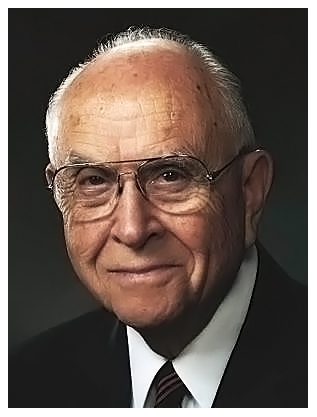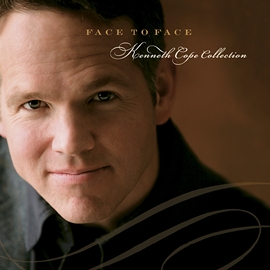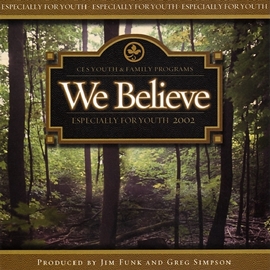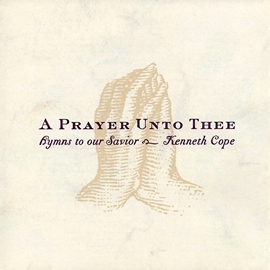(Continued from last week…)
Practice makes progress; Jesus makes perfect.
 Have you ever noticed how words carry different shades of meaning for different people, depending on their individual experience and upbringing? In fact, it’s like this with names. A husband and wife may struggle to come up with a baby name for the simple reason that a name which one of them likes is a name that brings up an unpleasant memory for the other. And so it is when it comes to words with multiple definitions. Although used in the same context, a word or phrase can feel harmless to one person, while being displeasing to another. The word qualify is one of these words for me. I’ve been trying to figure out why, and I believe I’ve come to the conclusion that I must not see the word in the same way that others in the Church are using it. In the past ten or fifteen years I have been noticing our Church leaders voicing more and more frequently the idea that we qualify ourselves for eternal life. Therefore, I would like to scrutinize this word a bit, so that I and whoever reads this might come to see more clearly what our leaders might mean, as well as what they could not possibly mean.
Have you ever noticed how words carry different shades of meaning for different people, depending on their individual experience and upbringing? In fact, it’s like this with names. A husband and wife may struggle to come up with a baby name for the simple reason that a name which one of them likes is a name that brings up an unpleasant memory for the other. And so it is when it comes to words with multiple definitions. Although used in the same context, a word or phrase can feel harmless to one person, while being displeasing to another. The word qualify is one of these words for me. I’ve been trying to figure out why, and I believe I’ve come to the conclusion that I must not see the word in the same way that others in the Church are using it. In the past ten or fifteen years I have been noticing our Church leaders voicing more and more frequently the idea that we qualify ourselves for eternal life. Therefore, I would like to scrutinize this word a bit, so that I and whoever reads this might come to see more clearly what our leaders might mean, as well as what they could not possibly mean.
I do not know what the word qualify means to you. But here are some definitions:
“In some sporting events, to demonstrate required ability in the trials, in order to qualify for, and advance to the finals.”
In the Olympics, many events in track and field, swimming, skiing, and other categories have preliminary matches, where contestants compete to qualify for the finals. And this is for the simple fact that there are more people competing than there are spaces available in those final, deciding races. So one may have to finish under a certain time, or be within the top eight best performances overall to continue competing.
“To fire a rifle or pistol on a target range with a score high enough to qualify for a rating of marksman, sharpshooter, or expert.“
My nephew, Jacob, is just finishing up his basic training with the National Guard. As part of this training, he with all the other soldiers had a weapons qualification—a practical rifle test—to ascertain their level of marksmanship. Each of the soldiers were given 40 rounds of ammunition to hit 40 targets that popped up randomly from a distance ranging from 50 meters to 300 meters away. The targets would only stay up for three to nine seconds, depending on the distance. To qualify as an expert, the soldiers had to hit 36 out of the 40 targets. Jacob hit all 40, receiving the title “Hawkeye.”
“To be fit or competent for something, as in qualifying for a job.“
When applying for a professional job, very often one is expected to have the right credentials. The appropriate amount of schooling, as well as hands-on training and/or job experience are required in order to qualify as a possible candidate.
Those who qualify themselves in each of these defined situations are successful, capable, even exceptional, in their accomplishment and expertise.
So…qualifying for eternal life?…ARE YOU KIDDING ME?
But I guess qualifying isn’t always about being on the better side of things. It can also go the other way. When one has had a tough year or more financially, they can qualify for outside help in the form of tax breaks, educational grants, food stamps, Medicaid, etc. Therefore, not doing as economically well can qualify someone for help that can subsidize or enhance their income. But that financial assistance doesn’t just show up out of the blue. One has to appeal to the powers that be and apply for it. And so it is with the gospel. We have to spiritually recognize our need—our lack of celestial qualifications—and then believe in the Savior, appeal to Him for increased strength, and take the steps He has outlined in order to receive His salvation. So if we qualify ourselves in any way, it’s by taking those required steps.
THE LORD QUALIFIES
When it comes to positions in the Church, regarding any one of us who doesn’t feel adequate to fill the calling, I’ve heard President Monson say: “Whom the Lord calls, the Lord qualifies.”…Well, I believe that it is the same when the Lord calls us to heaven. It is the Lord who will qualify us to get there, not we, ourselves.
Jesus told his apostles in the upper room, just before going to Gethsemane: “In my Father’s house are many mansions….I go to prepare a place for you” (John 14: 2). Well, Jesus could have rightfully added: ‘But, I’ll come back to prepare you for that place.’ He’s getting heaven ready for us, and He’s getting us ready for heaven.
Here is another definition:
“To get authority, license, power, etc., by fulfilling required conditions.”…like qualifying for citizenship in a country. (I would venture that this must be the way our leaders are using the word.)
We use our agency to qualify ourselves for baptism and temple ordinances by meeting certain requirements of conduct, and affirming our belief. But entering the Lord’s holy house, and being holy ourselves are two different things. It is the Lord who qualifies us, and gives us holiness. We give our will, our agency. He changes our nature.
Look at D&C 4: 5 – “And faith, hope, charity, and love, with an eye single to the glory of God, qualify him for the work.” These are sublime attributes. Where do they come from? Can we will ourselves to have them? Is not faith a gift that comes from God? We know that charity is. What about the others? So how can we qualify ourselves with that which we know God must give? If God does not give it, it is not ours to have. Therefore, God qualifies us for His marvelous work (v. 1) when He gives us these attributes. Then His work will happen freely. Divine attributes come from a divine source. Whom the Lord calls, the Lord qualifies. I could no more qualify myself to sit in the bishop’s chair than I could qualify myself to sit down in the kingdom of heaven, with Abraham, Isaac, and Jacob, and all the holy fathers.
The prideful Nephites were guilty of believing that their temporal prosperity was brought about by the hand of their own industry. Are we guilty of believing the same regarding our spiritual prosperity? That we are the ones doing it? Please hear me…this is not just a good philosophy to help keep our pride in check; this is truth. This is the way things are for us, and the way things were for King Benjamin and Alma, and the way things will be, even unto the end of the world.
 David B. Haight said: “All my callings have been beyond my grasp, so I’ve had to develop a longer reach” (Church News, Sept. 7, 2002). And how did he develop this longer reach? God added cubits to his stature. Elder Haight, by taking thought couldn’t do it. It had to be the Lord doing it for him. Oh…Elder Haight desired it, chose it, gave the energy he received from God to it, but it was the Lord that added the cubits. It was the Lord who qualified him.
David B. Haight said: “All my callings have been beyond my grasp, so I’ve had to develop a longer reach” (Church News, Sept. 7, 2002). And how did he develop this longer reach? God added cubits to his stature. Elder Haight, by taking thought couldn’t do it. It had to be the Lord doing it for him. Oh…Elder Haight desired it, chose it, gave the energy he received from God to it, but it was the Lord that added the cubits. It was the Lord who qualified him.
So, because of our Savior’s infinite atonement for all mankind, Jesus now has power from the Father to bring about our salvation. He will qualify us for heaven, and He will give us the gifts that will qualify us for His work here and in eternity. He is the Great Qualifier! Praises be to His holy name!
(to be continued…)































I agree with your assessment of the word “qualify” as I too have long had the same discomfort. I ended up replacing it with “enable”.
I appreciate the subtle distinctions you are making… and the refocusing on who is actually doing the qualifying.
Thanks, Ken, for your feedback…and I’m glad to know I wasn’t the only one feeling a bit uneasy about it. :)
At times the importance of such thought comes to my heart as the dividing between wheat and tares soon to begin; and the calamity spoken of in DC 1; that many will speak of their own imaginary righteousness before seeking to rejoice in the righteousness of the Lord (v.16) to “enable” as Ken mentions. If any appear to err in this manner, the Lord may bless both them and us to be gifted “to rely wholly upon the merits of Him who is mighty to save,” (2Ne.2:19-20), to trust alone in the Source of Every Good Thing. Moroni 6:4 and chapter 7. And he may not. These are thoughtful and gifted posts, opening us to His wisdom in humility. Surely we will see more and more of this until the mingled thoughts are purely separated from His precious Word and all can cease trusting in the flesh. –Tim
Thanks, Tim, for you thoughtful comment. I hope to one day cease completely putting any kind of trust in the arm of flesh. :)